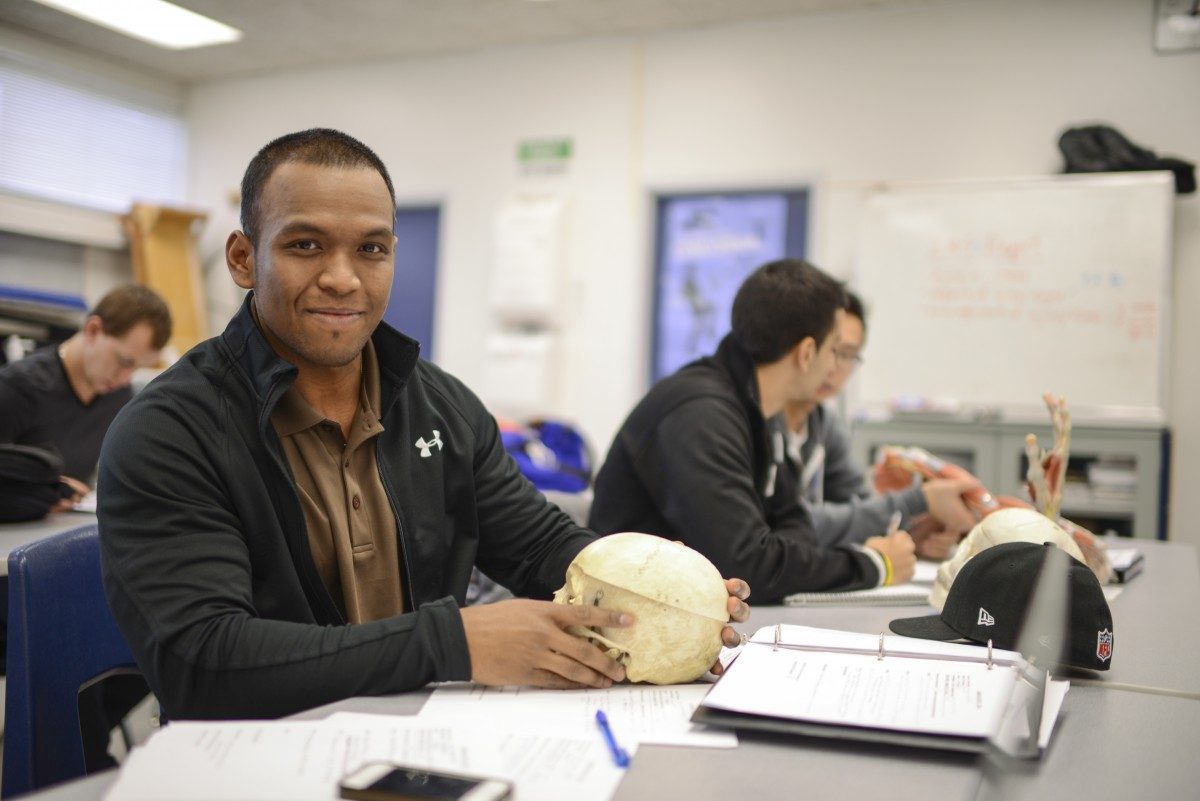
An updated curriculum means a more efficient approach to learning for Faculty of Kinesiology and Recreation Management students
New curriculum brings more experiential learning, Indigenous sport & games content
A new academic year ushers in a brand new curriculum for Faculty of Kinesiology and Recreation Management students.
As with most things, timing is everything. This was indeed the case behind updating the FKRM curriculum, which had been in place since 2007.
“It was just time,” says Dr Sarah Teetzel, Associate Dean of Undergraduate Education, Faculty of Kinesiology and Recreation Management.
“Guided by our 2015-2020 strategic plan, we knew it was time to update our curriculum to ensure our degrees optimally lead to the creation, translation, and mobilization of knowledge related to physical activity, human movement, sport and leisure.”
The new curriculum was actually enacted in 2017. However, since only minor changes were made at the U1 level, year 2 students will now experience the updates in action starting this fall/winter semester.
A goal of the FKRM curriculum renewal alignment and review process was to ensure courses were sequenced properly, built-off each other, and were truly prerequisites in the lineage of the program journey.
Highlights include:
- Physical Activity, Health and Wellness (KPER 1200) is now required for all FKRM students, with significant content added on Indigenous peoples’ contributions to health and well-being. “We want our students to graduate with a respect for Indigenous peoples’ contributions to health and wellness,” Teetzel says. Indigenous content is also now infused into the History of Physical Activity and Leisure course (KPER 2170).
- The Recreation Management and Community Development degree now has four areas of focus: sport and event management; therapeutic recreation; land-based education; and travel and tourism. “These streams won’t show up on students’ transcript, however, they allow students to individualize their degree and focus on areas they’d like to specialize in,” Teetzel adds.
- More movement opportunities for kinesiology and physical education students while in the classroom. “These are two fields that are quite active, and alums and students told us our curriculum was too stationary in the past,” adds Teetzel.
- An academic skills course has been added for year 2 students, which will cover expectations for items such as style and formatting, research, and writing.
- More courses will utilize experiential learning opportunities to connect students with outside organizations and agencies. As well, more in-class activities beyond traditional PowerPoint slides and lecturing are planned.
- Different opportunities for fieldwork will be available. Students in the new curriculum can embark on a six credit hour fieldwork placement in two different areas instead of one 12-credit hour experience.
- Alignment and sequencing benefits include eliminating duplication and redundancies (i.e. learning the same topic in multiple courses).
- More emphasis on health education in the Bachelor of Physical Education degree. Classes in health education and health promotion have been added.
“We’ve created a plan the whole faculty has bought into,” adds Teetzel.
“Faculty can see how their individual pieces contribute to the curriculum puzzle, and understand how they fit into the overall goal for our students and eventual graduates.”
Research and planning for the new curriculum involved focus groups with alumni, faculty, students, and community partners and stakeholders, as well as a variety of online surveys with each group.
It also involved professors of the degree programs identifying ideal graduate descriptions (knowledge sets, skills, and attributes), and then translating and mapping those with the intended learning outcomes of the courses.
The overarching purpose is to ensure the current curriculum prepares students for a number of prerequisites for other programs, as well to confirm they’re achieving gold standard credentials to gain employment in the fields of kinesiology, physical education, and recreation management.
No significant amendments or updates were made to the Athletic Therapy degree program’s curriculum.
“We’re excited to welcome our incoming year 2 students to the new curriculum, and we expect they’ll find the changes refreshing and meaningful,” Teetzel says.






